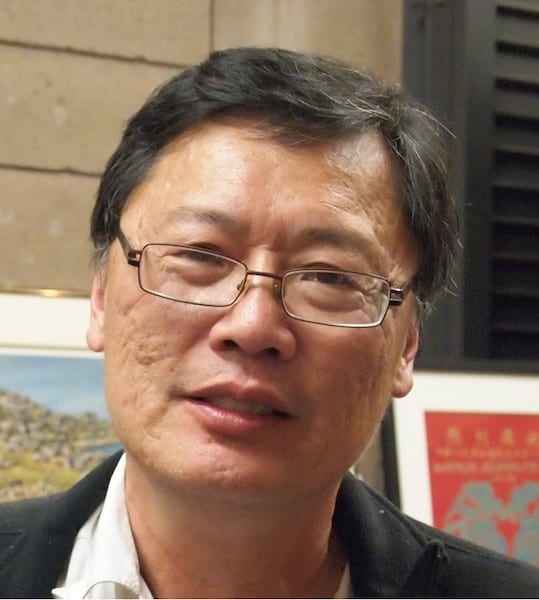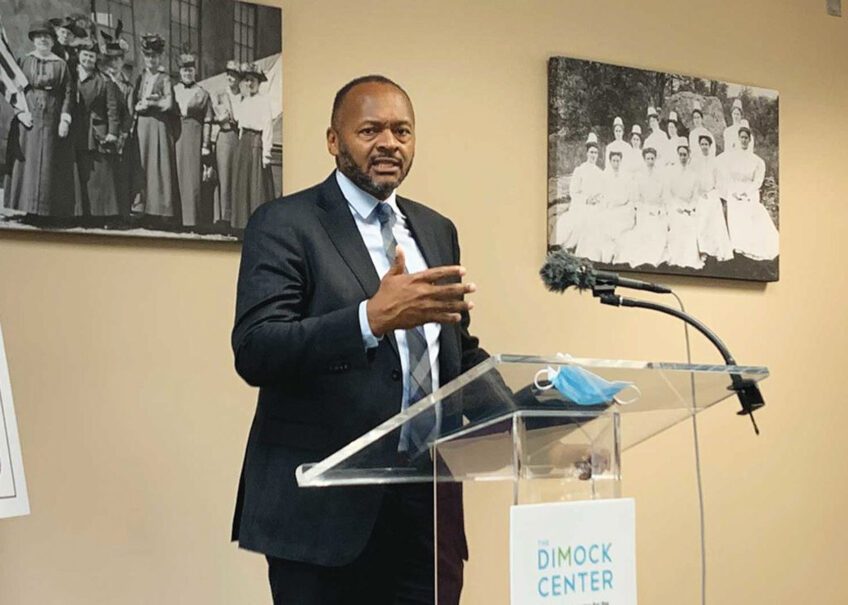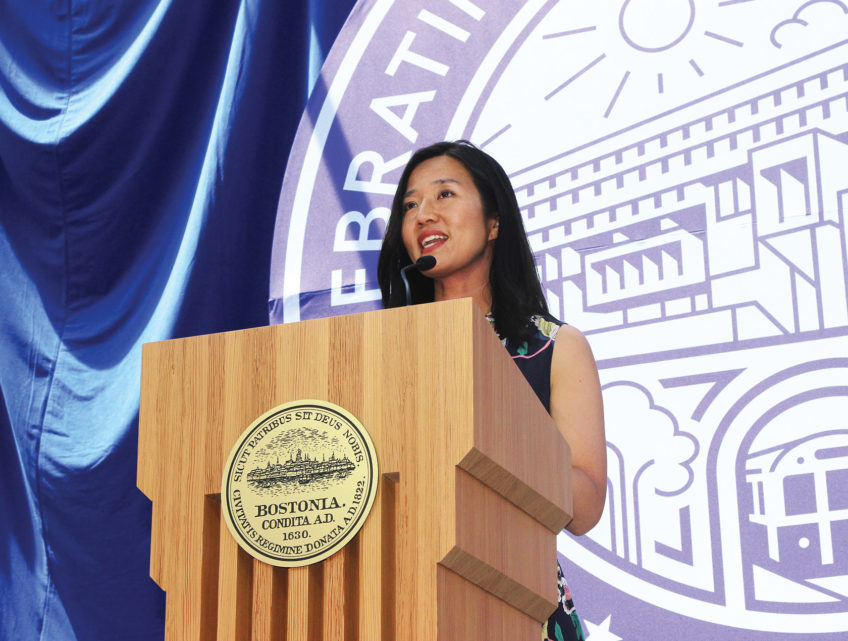
Michael Liu’s life and activism in the Chinatown neighborhood, inspired his recent book on its history.
“Forever Struggle: Activism, Identity, and Survival in Boston’s Chinatown, 1880-2018,” published by University of Massachusetts Press, came out in December. Liu traces the history of neighborhood residents’ struggles for recognition and basic rights in the late 19th and early 20th centuries, and then the neighborhood’s struggle against highway projects, institutional expansion and, in the current era, luxury real estate developments that have encroached on the traditionally low-income, immigrant community. He is a former senior research associate at the Institute for Asian American Studies at UMass Boston.
The Banner spoke with Liu on Zoom last week. The following interview has been edited for brevity.
What made you decide to write this book?
Obviously, it was personal, but I think history until very recently has been focused on elites and the dominant groups. To me, communities of color and the Chinese American community have played a significant role in the history of the city that is not recorded. I felt that nothing had been written about Chinatown in book form previously. I wanted to record it, because I wasn’t quite sure what the future of Chinatown would be. Chinese people have played an important role in the city, and that should be recorded.
Boston’s Chinatown is unique. Number one, it stayed in the same place. A lot of Chinatowns actually got moved around within a city. In Washington D.C., I think it moved three times. The Chinatown there is almost just a shell of itself. There are restaurants, but no people. Boston’s Chinatown has probably carried out the most continuous campaign for its survival.
Did that campaign for survival start from the beginning, or with the highway construction in the ’50s?
I divide the issue of Chinatown into two phases. The first part is dominated by traditional leadership, based upon organizations with cultural roots and geographic roots and dominated by the elite business owners in Chinatown. Their basic philosophy was to keep your head down — don’t make trouble, just take care of the Chinatown area, and they won’t bother us. They only organized against the highways when the state decided to route the central artery right through the business area. They shifted it so that only part of the business district was cut off.
The second part of Chinatown’s history is really where I think a lot of the subsequent mobilization came. It was inspired by things like the Civil Rights Movement, the Black power movement, which influenced a new American-born generation in Boston’s Chinatown.
How important has it been for Chinatown to collaborate with other communities on issues like urban renewal and development?
The collaboration took different forms. I would say real collaboration only happened later, when Chinatown actually was more consciously working with other communities on common issues. When Mel King, who grew up having some Chinese friends, came out to support a lot of young activists like myself, that was very important in terms of Chinatown beginning to work with other communities of color on similar interests in the early ’70s.
The first public demonstration against urban development in Chinatown was against the Tufts-New England Medical Center. And this was the beginning of a new wave of mobilization. In those first few years, Mel King would come down and walk the picket lines with the young activists. The bonds were built at that time. Later, where Chinatown really began to establish relations with a lot of other communities was in Mel King’s 1983 mayoral campaign.

Michael Liu
What are some of the common misperceptions about Chinatown that you try to clear up through this book?
I think a lot of people have a general perception about Asians that we’re perpetual foreigners and that everybody has arrived recently. By tracing the origins of Chinatown back to the late 19th century, I want to show that actually, Chinese have deep roots in the city of Boston. That’s one perception. Another common perception today is that all Chinese and all Asians are well off. It’s part of this idea about the “model minority.” And I think what’s often forgotten, certainly in the early history of Chinese Americans, is that they were all poor, they were all discriminated against, formally and informally. I wanted to show that this population is really struggling with a lot of different issues, similar to other communities of color.
You grew up in Chinatown. A lot of this history is personal. Did you struggle at all with how to write an objective history?
I did struggle with it, a lot. But I thought I would primarily write from the point of view of other participants and actors in Chinatown. I tried to try to avoid talking about myself too much, except for the parts where I felt that it would add to the book. I tried to mainly talk about other people, who in many ways took similar actions, and so therefore my role wasn’t that important.
What does the future hold for Chinatown?
I would say it’s up in the air. I think that development in cities is the most powerful local force. It’s hard to argue against money, and money goes into development. But Chinatown has been able to stabilize. There’s low-income housing. They’ve tried different devices, like creating a land trust. Two community development corporations are trying to build low-income housing. But the neighborhood is really surrounded by a lot of luxury housing, so I would say it’s unclear.
Having grown up there, how do you feel when you see the way things have gone in Chinatown over the last few decades?
On one hand, it’s sort of sad. It’s nostalgic, in a way, because, you know, when I grew up — and maybe it’s true for a lot of people in my generation — there was a family sense in the neighborhood. Even though it was poor, you knew a lot of families. A lot of that has been dispersed, and the neighborhood is not very contiguous. There are lots of people my age who kind of look back on that period nostalgically.
On the other hand, I see a lot of young people, both in the neighborhood and outside the neighborhood, who are trying to do something for Chinatown. So that’s been inspiring. But I don’t really know what’s going to happen, so I have fears. I have sources of fear and sources of hope, I guess.







